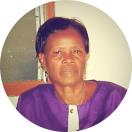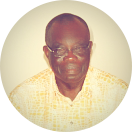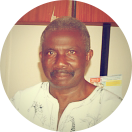News
Education - State of the Nation Address 2016 by His Excellency, JOHN DRAMANI MAHAMA PRESIDENT OF THE REPUBLIC OF GHANA
- Details
- Created: 09 March 2016

Mr. Speaker,
I would like to show how we are changing lives. And what a better place to start than with education, which has been proven to be the single most effective way not only to change a single life, but other lives that surround it.
Education can break cycles of poverty and abuse. Education is the key that can unlock, for children, worlds into which their parents could not enter; worlds they never even knew existed.
During this term, my first term as President, we have consciously developed strategies and made interventions to raise the quality of education by emphasising its relevance, improving access, and working to eliminate gender discrimination and inequality. We have also worked to better train and equip our teachers.
BASIC EDUCATION
Mr. Speaker,
Ghana has been commended by the United Nations for meeting the target of the Millennium Development Goal (MDG) on achieving universal primary education with gender parity. Despite that achievement, there are still a significant number of school-age children that are not enrolled.
These children are now being targeted under the Compulsory Basic Education (CBE) programme of the Ministry of Education. In the last year, a total of 54,800 out of school children in four regions have been enrolled into schools. These are 54,800 children who would not have received an education. These are 54,800 children whose lives will now have much different outcomes as a result of this programme.
Other important social interventions that are being implemented in the educational sector include the issuance of free supplies such as uniforms, sandals and textbooks.
In June 2015, I launched the free school sandals programme which saw the start of the distribution of 10,000 Kumasi Shoe Factory Made-in-Ghana leather sandals to school children in need across the nation.
A number of students would have struggled without the basic necessities with which to attend school - students like Mohammed Awabu of Moglaa JHS in the Savelugu District of the Northern Region who received free sandals; or David Aminayire of Nayagenia JHS, Kassena-Nankana Municipal in the Upper East Region who received free uniform, free exercise books and textbooks.
Last year, I insisted that the Ministry of Education must ensure that all textbooks are printed in Ghana. This is on course. In fact, I would like to acknowledge the statement of gratitude received from the Ghana Printers and Paper Converters Association, led by Mr. James Appiah-Berko.
I would especially like to take note of their indication that this intervention will help create 1,400 new direct jobs. Better still, that is 1,400 new direct jobs in Ghanaian businesses.
Mr. Speaker,
In our determination to improve quality education, we have also introduced two new programmes - the Teacher Professional Development Initiative and the Provision of Teaching and Learning Materials programme.
The Teacher Professional Development initiative aims to achieve a target of 95% trained teachers at the basic level by 2020 as set out in the Education Strategic Plan (ESP). The Provision of Teaching and Learning Materials (TLMs) programme has seen to the distribution of teaching and learning materials to 10,924 basic schools.
In addition, 30,000 teachers were trained in ICT under the Basic School Computerisation Programme, bringing the total number of teachers trained under the programme to
50,000.
SECONDARY EDUCATION
Mr. Speaker,
Secondary education was plagued with a number of challenges, notably lack of access, leading to a poor transition rate from JHS to SHS. We are vigorously confronting these challenges. Under our programme to establish 200 Senior High Schools, I can report that 123 are currently being constructed. But permit me to place this project in a broader perspective.
The first secondary school was established in Ghana 140 years ago, in 1876. Between that date and 2012, the number of public secondary schools established was 526. The 123 schools that are being implemented right now will create more than 200,000 new places in the system, thus making the Community Day Schools Intervention the biggest ever expansion programme in the entire history of secondary education in Ghana.
It is because of this programme that 16-year-old Apim Shulamite is now the Assistant School Prefect of the Atta Mills Community Day School in Otuam. After completing JHS, Apim, who once dreamt of becoming a nurse, had to stay home for a year due to lack of access to a secondary school. Apim's parents are settlers from Somanya. Her father is a taxi driver and her mother sells second-hand clothing.
During the year that she stayed at home, Apim sold waakye and worked in a chop bar. Because of the Community Day Schools intervention, students like Apim are able to go from limited prospects to the fulfilment of personal dreams that ultimately benefit the entire nation.
Additionally, under the Secondary Education Improvement Programme (SEIP), 10,400 students benefitted from scholarships. 60% of the beneficiaries are young women, like Gertrude Ahyia Yeboah, who is currently a student at St. Augustine's SHS in Bogoso in the Western Region.
TERTIARY EDUCATION
Mr. Speaker,
Enrolment in tertiary institutions increased by 6.3% for Universities and 8.9% for Polytechnics.
In November of last year, I inaugurated the main campus of the University for Health and Allied Sciences (UHAS) at Ho, which, in just three years of its establishment, has achieved many remarkable success stories. So far more than 2,300 students have been enrolled. Associated with the enrolment is also the creation of 816 direct jobs for teaching and non-teaching staff of UHAS. But those are just numbers.
Let me tell you about one of those 2,300 students: Dzidzor Kwamuar from Fodome-Helu. She lost her mum when she was 10 years old. When she counted herself along with her 13 siblings, those being her father's children, there didn't seem to be any hope of standing out. Thankfully, an uncle took care of her through JHS and SHS. She was admitted to Aburi Girls and completed her studies there in 2014 only to find that despite being qualified, she could not attend medical school due to inadequate access.
Now, with the opening of the University for Health and Allied Sciences, Dzidzor is indeed standing out. This access has made a tremendous difference in her life, and it will also make a difference in the lives of Dzidzor's future patients.
Mr. Speaker,
Progress has been made at the University of Energy and Natural Resources, which has so far admitted 2,685 students and created 315 teaching and non-teaching jobs.
The bill for the establishment of the University of Environment and Sustainable Development has been passed and I have appointed an implementation team to assist the Ministry of Education in realising this vision. In fulfilment of our pledge to ensure that each region in Ghana has at least one public university, we are on course to begin construction this year at Donkokrom in the Afram Plains and Somanya, all in the Eastern Region.
Mr. Speaker,
In furtherance of our policy to convert polytechnics to technical universities, six (6) have met the 16-point criteria and have been recommended for immediate conversion. They are the Kumasi, Accra, Koforidua, Ho, Sunyani, and Takoradi Polytechnics.
The remaining four polytechnics will be assisted by a special arrangement to support them with infrastructure, equipment and the strengthening of their governance structure to enable them meet the conversion criteria in the shortest possible time.
Mr. Speaker,
The abolition of the quota system for enrolment in colleges of education has increased admissions by 63 per cent.
This has created access for many students who otherwise would not have had the opportunity. To assist teacher trainees and finance their education, following the cancellation of the teacher trainee allowances, I have asked the Ministry of Education to direct the Student Loan Trust to register trainees on their campuses and disburse student loans to them.
This new system allows us to reinvest in the education of the next generation of teachers and students.
To fulfil the policy of providing Colleges of Education in under-served areas and to expand access to teacher training, Government is absorbing into the public stream the following colleges -
■ Saint Ambrose College of Education, Dormaa District
■ Al-Farak College of Education, Wenchi District - this will become our first ever Islamic College of Education
■ Gambaga College of Education, East Mamprusi District
■ St. Vincent College of Education, Yendi Municipality
■ Bia Lamplighter College of Education, Bia District.
Two other private colleges will be absorbed in the Brong Ahafo and Ashanti Regions to fulfil the initiative of providing a college of education in under-served areas. In addition, work will begin on three new Colleges in the Greater Accra, Central and Northern Regions.
Mr. Speaker,
Last year, we worked to improve the skills of in-service teachers. In 2016, we are going one step further by enhancing the education of pre-service teachers by giving them the skills and tools they need to excel in the classroom, and prepare our children for a bright and prosperous future.
We are doing this through the Transforming Teacher Education and Learning (T-TEL) Programme, which aims to impact 35,000 teachers over four years. Central to achieving this are the 38 Colleges of Education.



